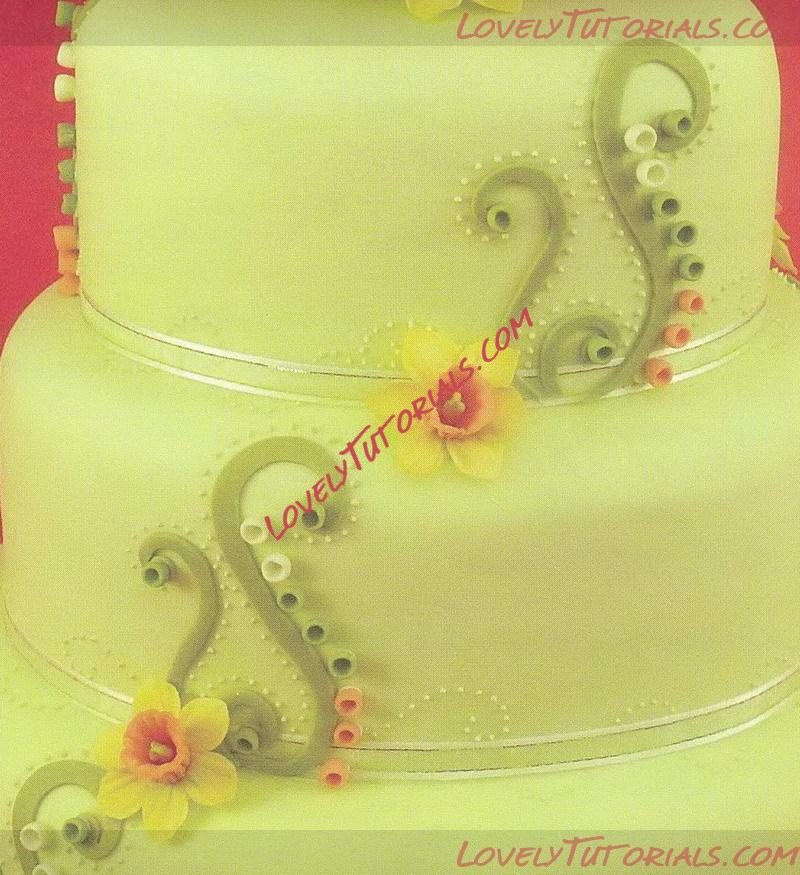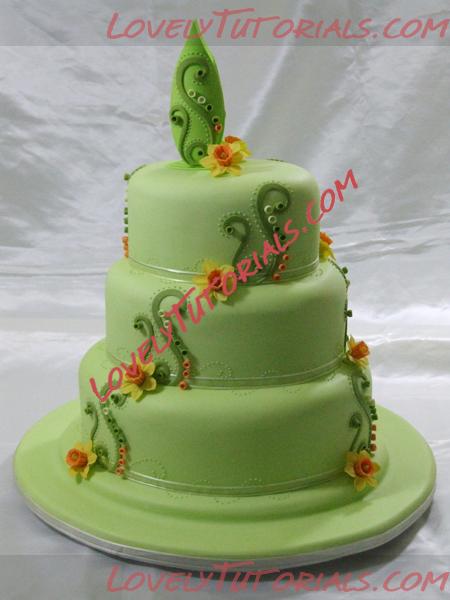Огромная благодарность
Stephen Benison за Мастер-класс
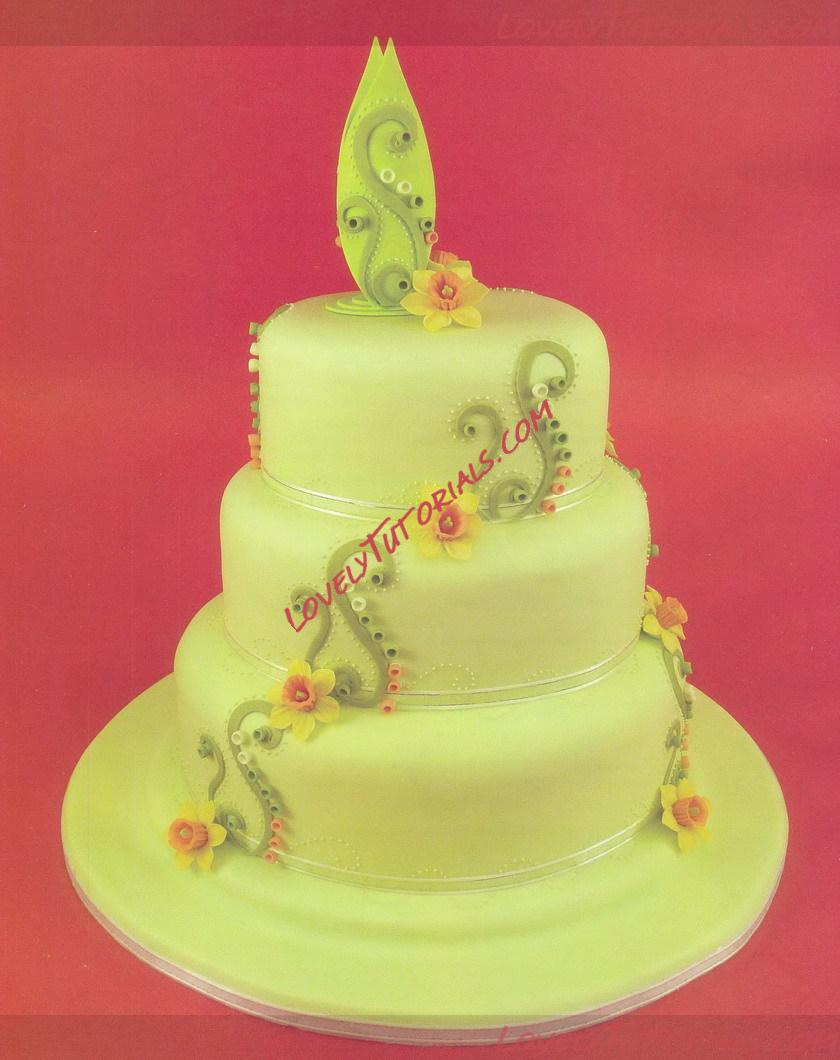 YOU WILL NEED
YOU WILL NEED
oval cakes 15,20,25cm (6, 8, 10in)
drum oval 30, 40cm (12, 16in)
thin board oval 18, 23cm (7, 9in)
almond paste 3kg (6lb 6oz)
sugarpaste green 4kg (8lb 8oz)
royal icing
apricot jam
clear alcohol
mexican paste 150g (5oz)
flower paste 1OOg (3'/2oz)
sugar glue or egg white
vegetable shortening
cornflour dusting bag
modelling paste (add 1 x 5ml teaspoon of Tylose/CMC
powder to 500g of sugarpaste)
plastic cake dowels 12
rolling pins small, large
non-stick rolling board
spacers to gauge the thickness of marzipan and
sugarpaste
side edger
piping tube No.1, 2 (PME)
piping bags
S scroll cutter small, large
teardrop cutter
designer cutters / with oval inserts
bottle neck former
six petal cutter
daffodil trumpet former
small ball tool
angled tweezers
medium paintbrush
plastic document wallet
wooden satay stick
cel pad (CelCakes)
dimpled foam sponge
Secure the two drum cake boards together with double-sided tape. Cover the cakes with sugarpaste and allow to dry. Place the bottom tier onto the board. Insert six plastic dowels in to the bottom and middle tiers as you stack them. Secure ribbon around the base of each cake.
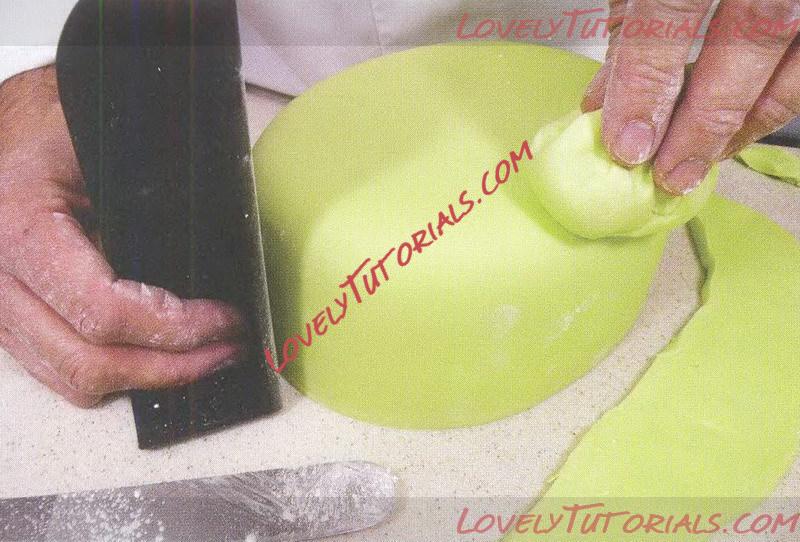
1 Cover the cakes with almond paste and allow to dry. Coat with green sugarpaste. Use the side edger to give straight and neat sides. Polish the surface with a small pad of sugarpaste to give a satin smooth finish.
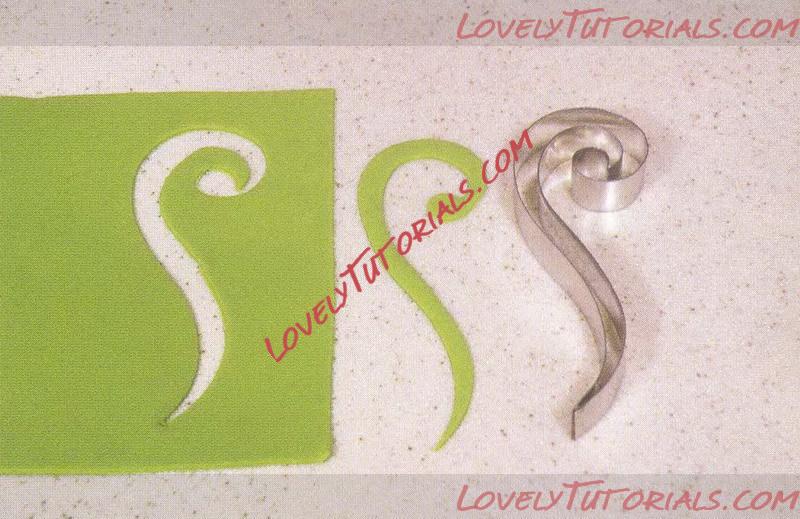
2Roll out modelling paste to approximately 1,5mm thick. Allow the paste to relax after rolling to prevent shrinkage. Turn the paste over on to a non-stick rolling board and cut out the large S scroll with the cutter.
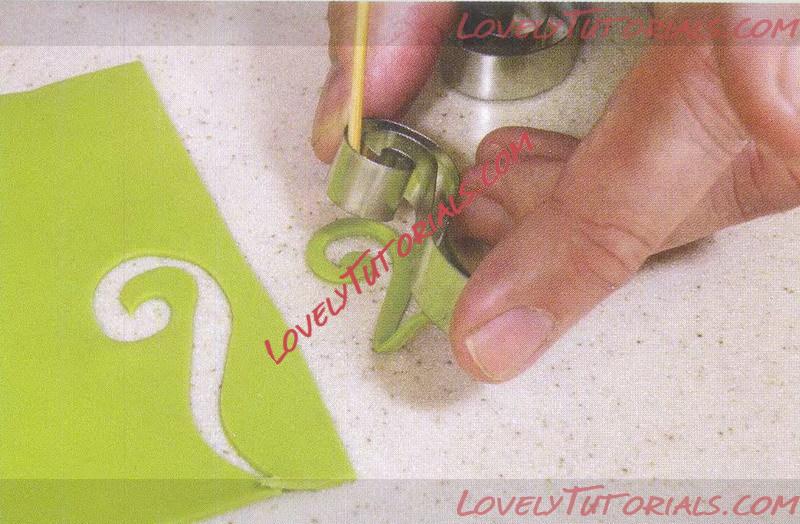
3 Repeat the process with the small S scroll cutter. Use the flat end of a satay stick to gently push the cut-out section from inside of the cutter.
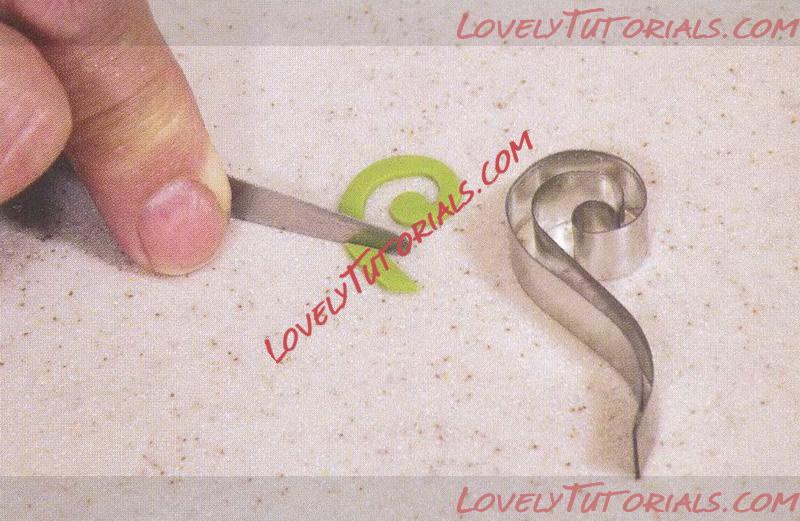
4 Roll out modelling paste and then cut out the small S scroll. Use the edge of a small palette knife to cut across the top of the scroll.
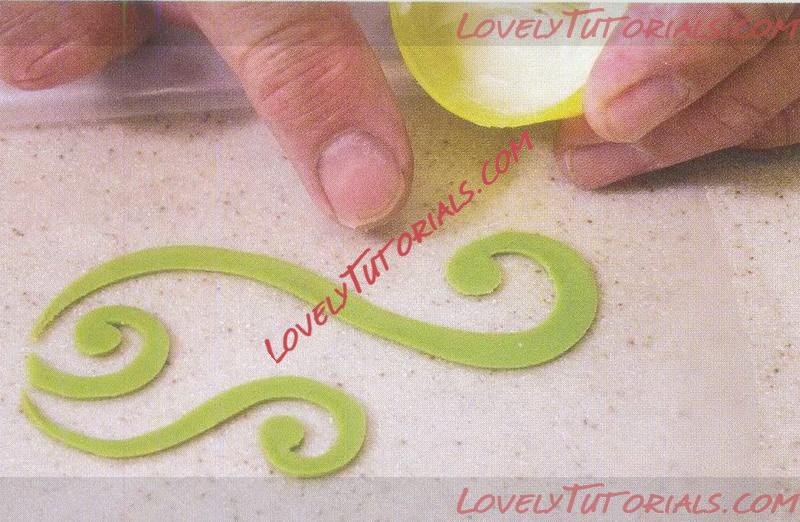
5 Cut a section from a plastic document wallet large enough to take the large S scroll cutter. Rub the surface with vegetable shortening then add the cut out scrolls, cut side down onto the plastic.
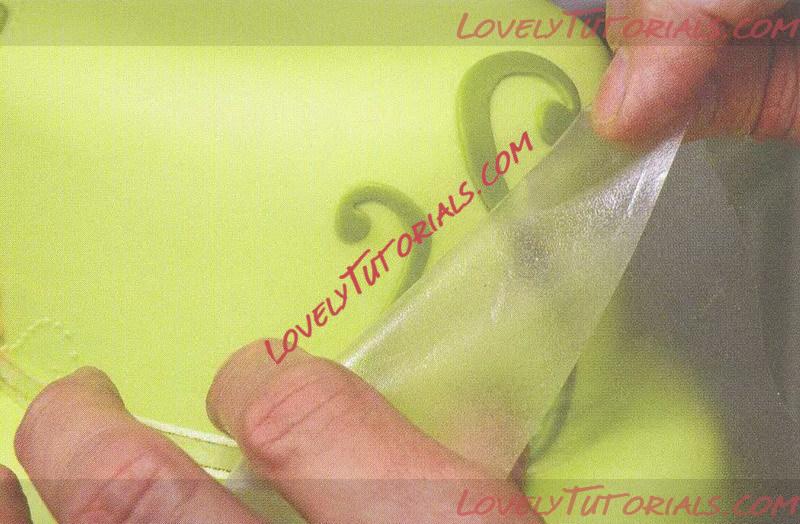
6Lift the plastic sheet, with the scroll design attached. Position onto the side of the cake. Gently rub over the design with your fingers. Peel away the plastic sheet to leave the design in position.
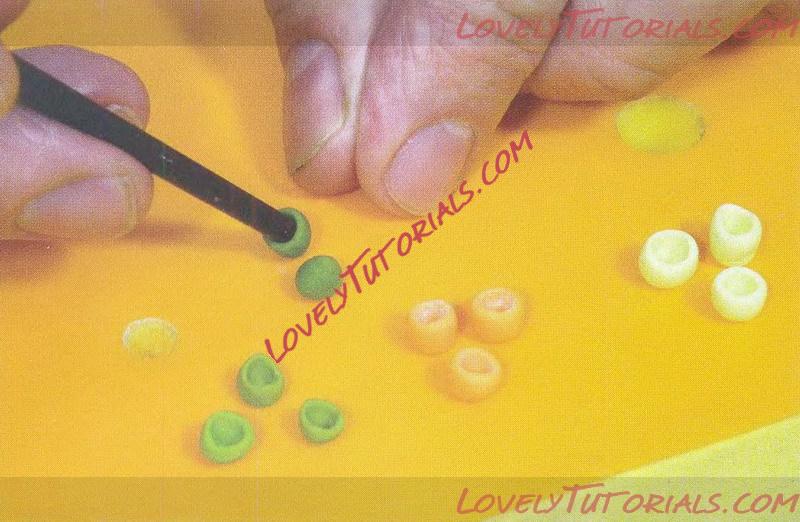
7 Make modelling paste flowers for the side of the cake. Use a small ball tool to indent and cup them. You will need, 60 spring green, 40 apricot and 40 very pale green. Place onto a soft surface to dry.
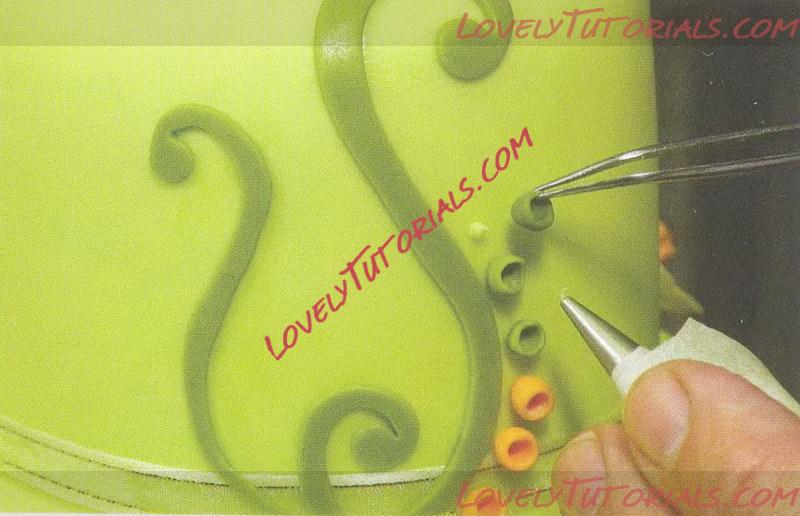
8Use a No. 2 piping tube and a firm consistency of pale green royal icing to pipe a bulb of icing. Use angled tweezers to secure each of the flowers around the S scroll cut-outs. Repeat the design three times on each tier.
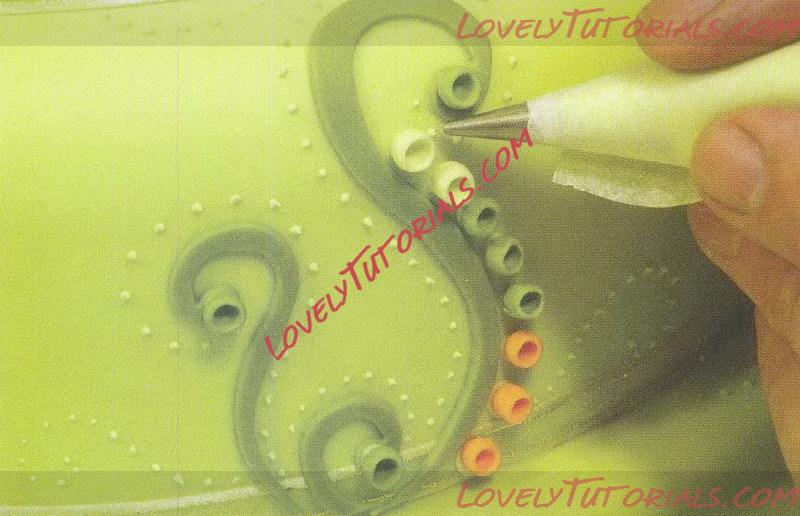
9 Use a No.1 piping tube with soft consistency of pale green royal icing to pipe dots around the outside, of the cut-out scrolls.
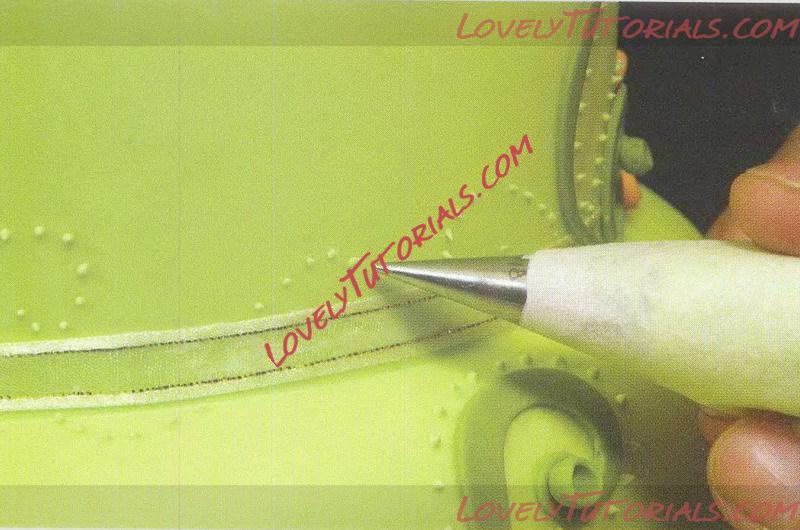
10 With the same icing continue to pipe the dot design over and under the ribbon around the sides of the cake.
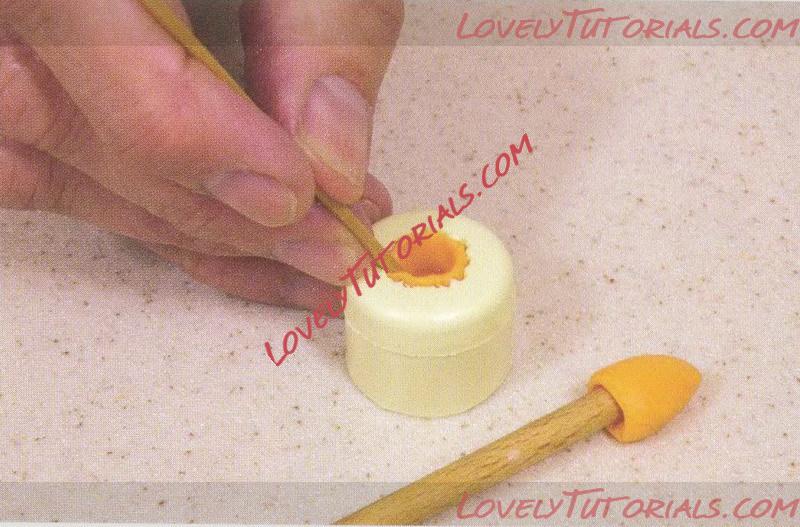
11 Form a cone of apricot coloured flower paste. Lightly grease the inside of the daffodil trumpet mould. Insert the cone into
the mould. Use the edge of a rounded satay stick to bring the paste
up the inside of the mould.
TECHNIQUE
To make a small amount of royal icing mix: 1 tablespoon of water with 1 x 5ml teaspoon meriwhite or meringue powder and one drop of lemon juice.
Beat in sieved icing sugar using a small palette knife, until full peak consistency. You can adjust the consistency when letting down the icing for use with a little water.
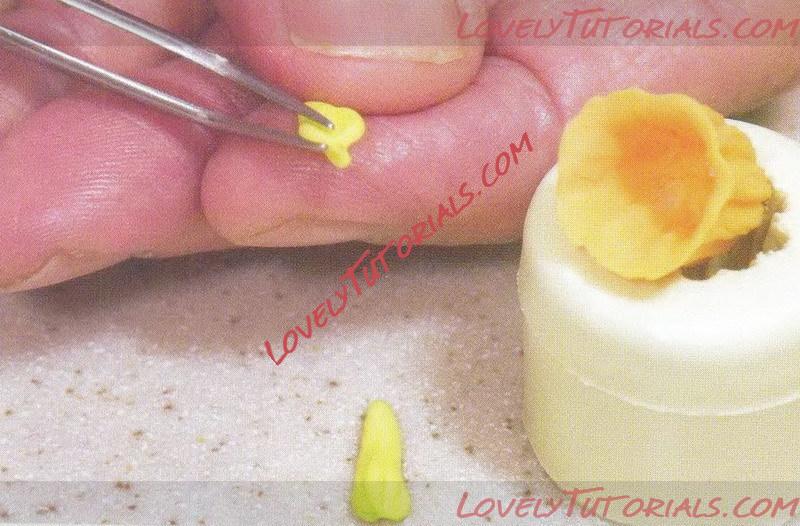
12 Roll a small sausage of flower paste for the pistil. Make three indents at one end with angled tweezers. Brush with spring green powder colour and allow to dry.
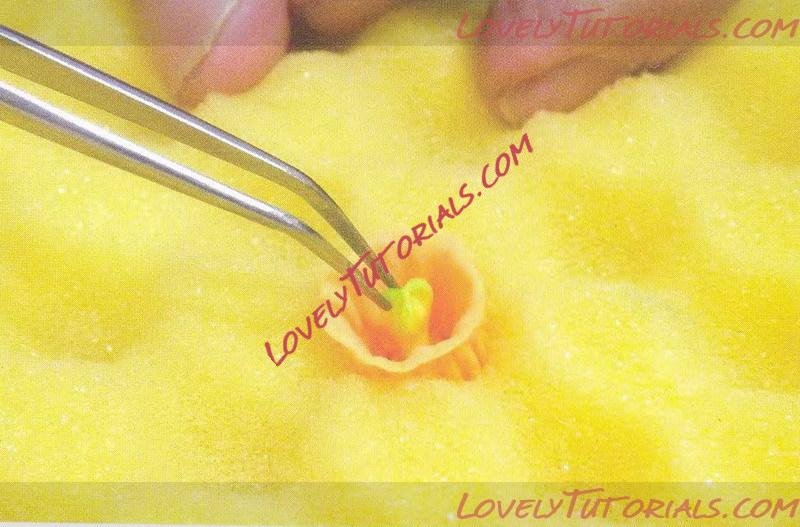
13 Make a small ball of softened tangerine flower paste. Brush a small amount of sugar glue on the bottom of the daffodil trumpet. Hold the pistil with angled tweezers and insert into the paste. Allow to dry.
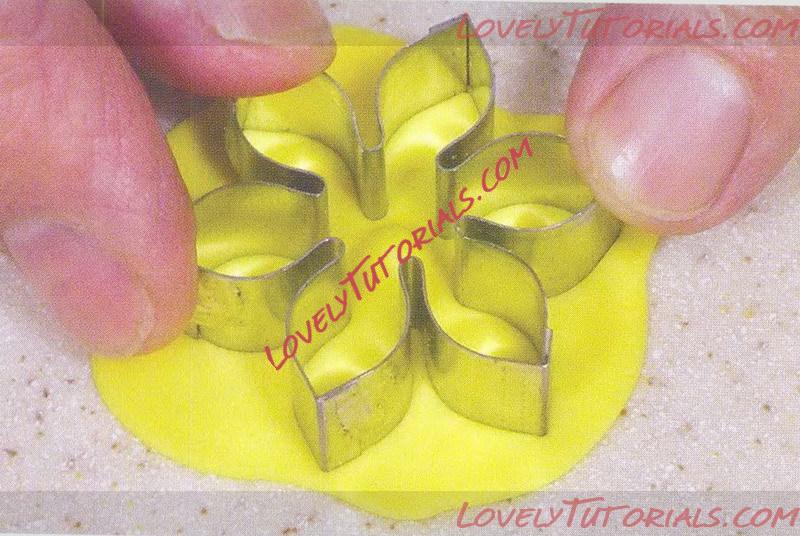
14 Form yellow flower paste into a squat mexican hat shape and cut out with a six petal cutter.
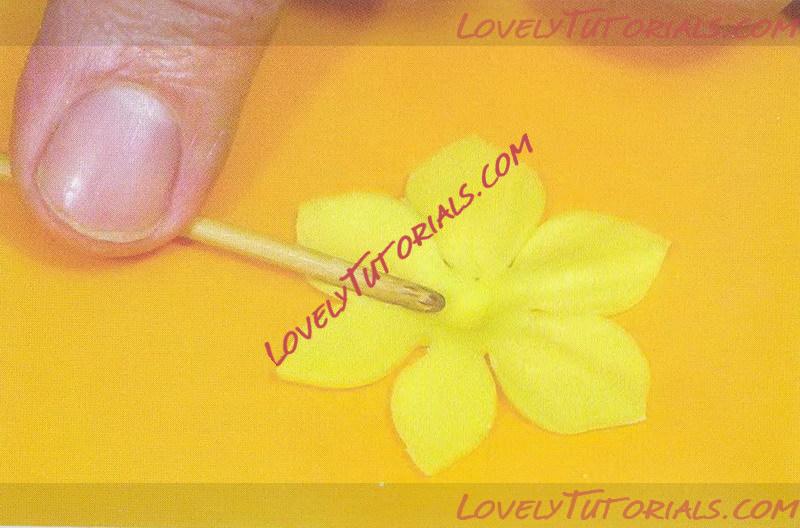
15 Place onto the firm side of a cel pad with the raised part over the hole in the pad. Use a rounded satay or cocktail stick to roll from the middle to the outside edge of each petal.
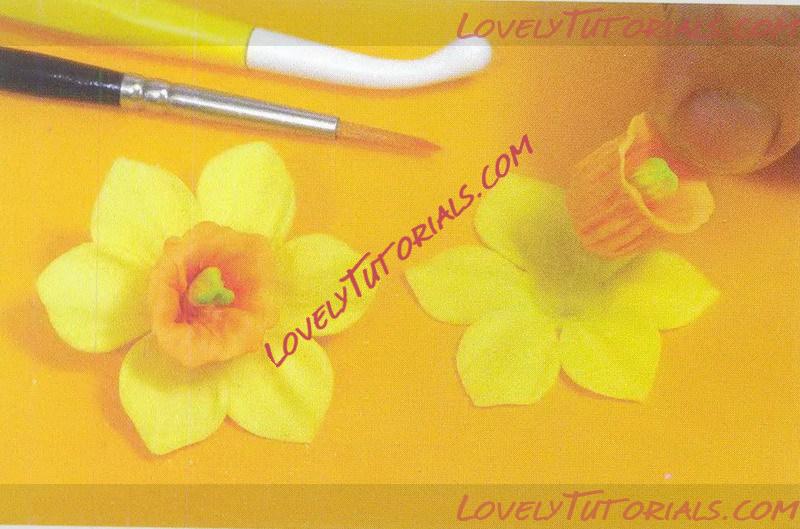
16 Cup the centre of the daffodil with a ball tool. Brush sugar glue in the centre and then insert the dry trumpet. Place onto dimpled foam sponge to dry.
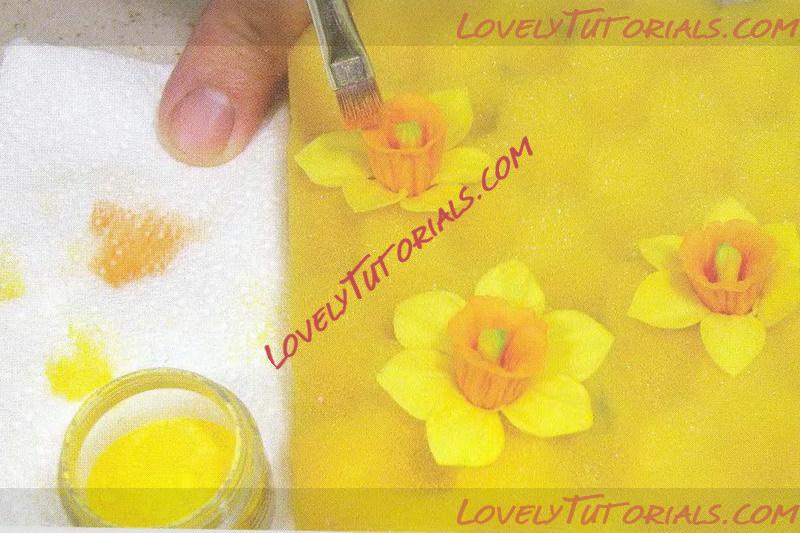
17 Use a flat chisel paintbrush to mix colour dusts onto a piece of kitchen paper towel, brush these onto the petals and trumpet.
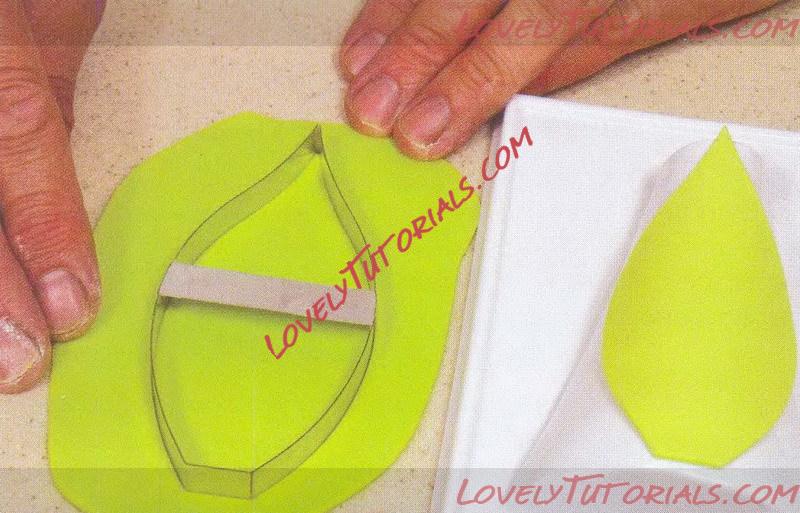
18 Roll out mexican paste to approximately 1.5mm thick. Lightly grease a plastic bottleneck former with vegetable shortening. Cut out two teardrop shapes. Lift the cut out shape with a palette knife and dry on the former.
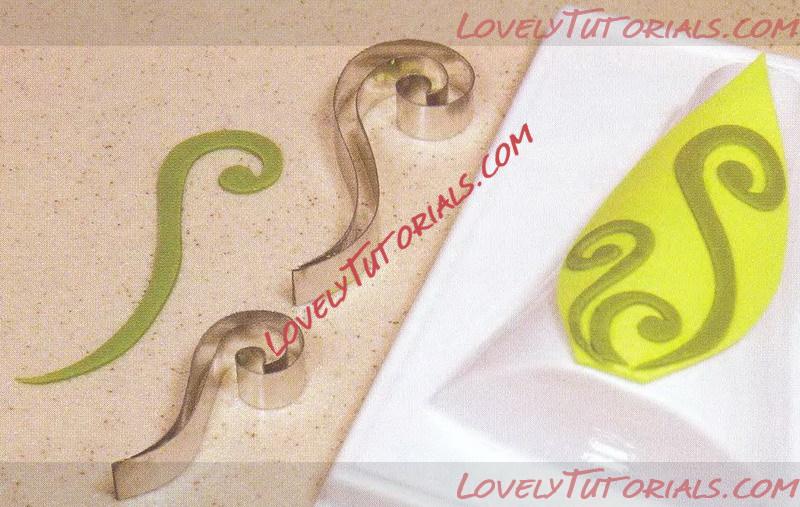
19 Cut out the large and small S scrolls with modelling paste.
Allow to become plastic hard, and then secure these to the dry teardrop with water. Repeat on the second teardrop.
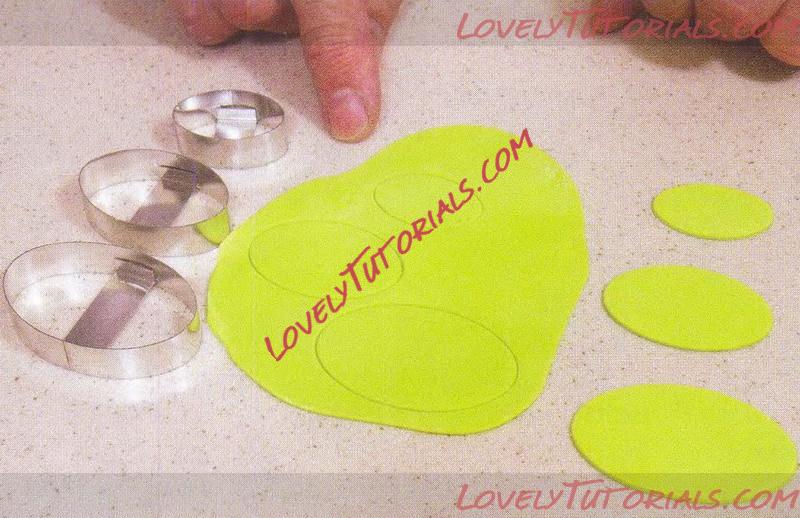
20 Roll out green mexican paste and cut out three ovals with the oval cutters from the designer cutters set. Allow to dry. Secure flowers around the scroll shapes, with royal icing.
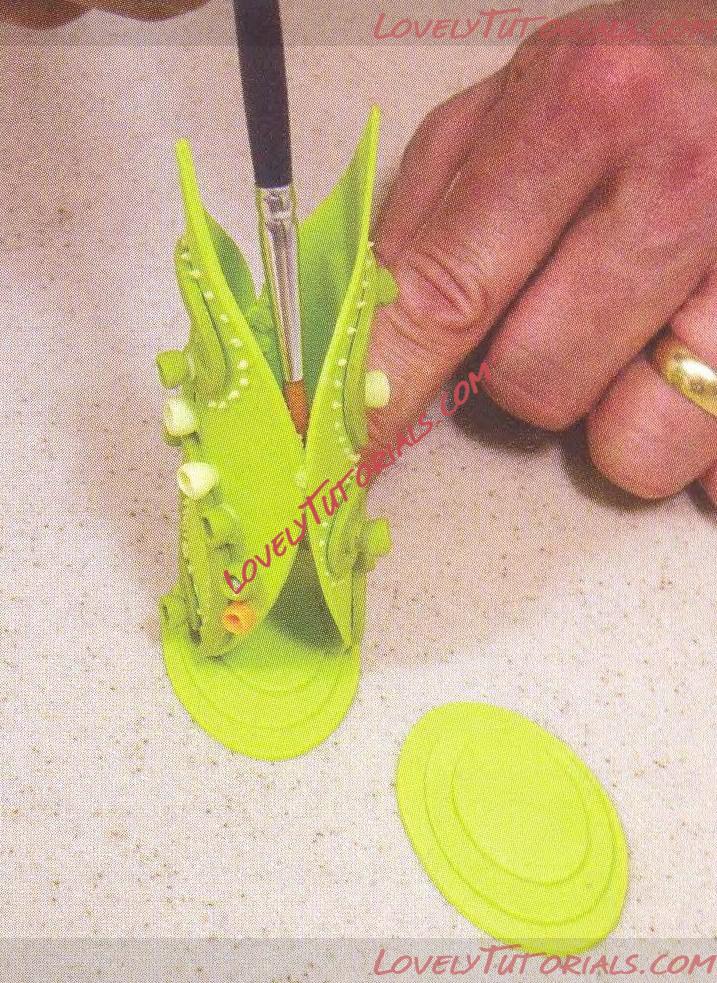
21 Soften mexican paste with water to make a paste. Apply a small amount with a palette knife along the base and edge of the teardrop. Hold in position with foam sponge until dry.
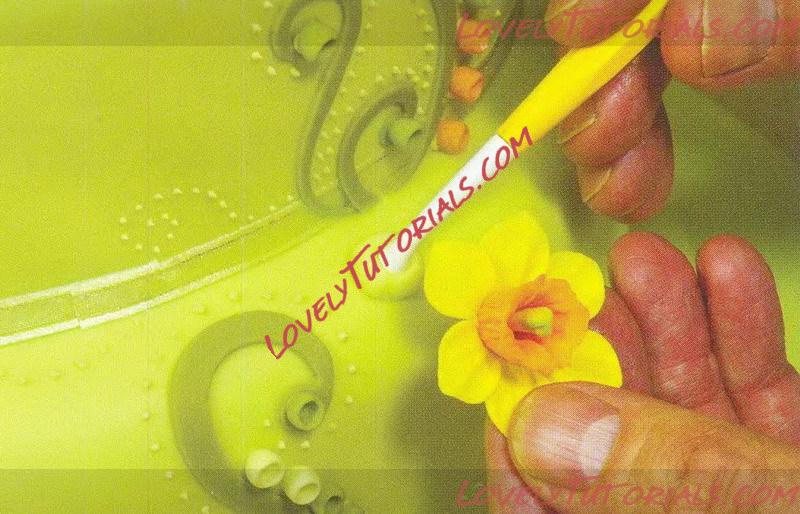
22 Make small balls of sugarpaste the size of peas. Brush water where they are to be secured onto each tier and cup the centre. Brush the soft paste with sugar glue and secure the daffodil into position.
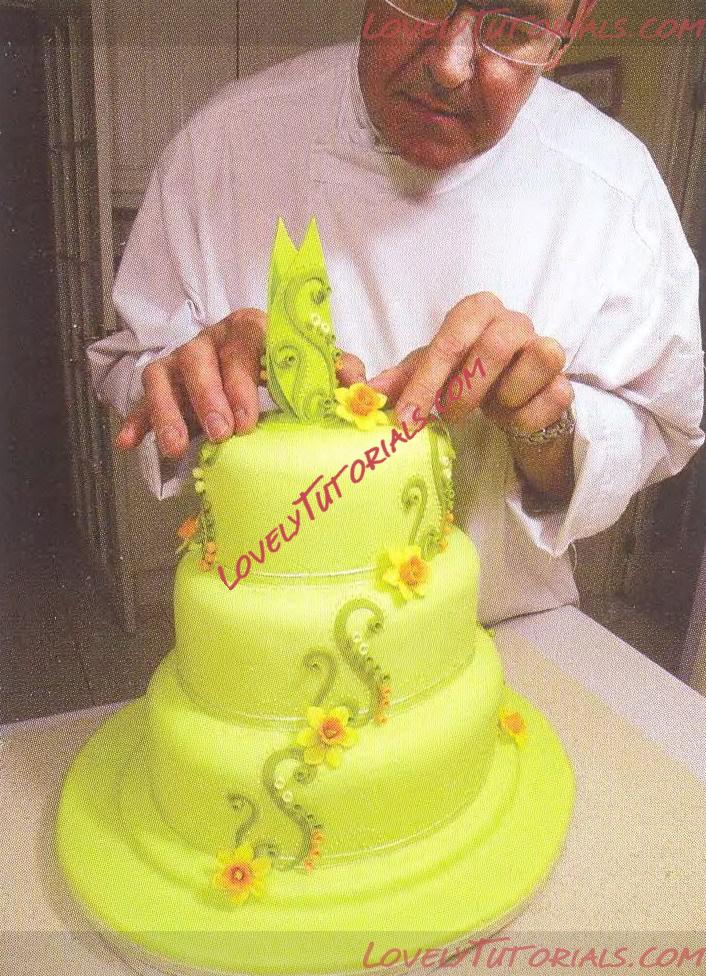
23 Secure the cake top decoration with soft royal icing and add a daffodil on each side.
